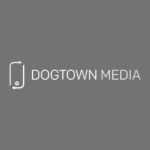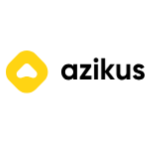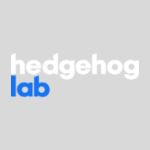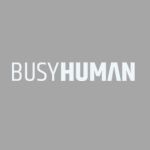
Top Food Portal Development Companies
Welcome to our curated list of the top Food Portal Development Companies! Choosing the right partner to develop your food portal is essential for success, and we’re here to guide you. Our comprehensive guide showcases the best firms in the industry, rated by user reviews. Whether you’re looking to build a food delivery platform, restaurant booking website, or recipe sharing app, our list highlights companies known for their expertise in creating innovative and user-friendly food portals. With our curated selection, you can make informed decisions and choose the perfect partner to bring your food portal idea to life. Explore our list and start your culinary journey today!
List of the Best Food Portal Development Companies

-
Employees: 10 - 49
-
Min. Project amount: $50 - $99 / hr
-
Country: NY, United States

Dogtown Media
-
Employees: 10 - 49
-
Min. Project amount: $25,000+
-
Country: CA, United States

Azikus
-
Employees: 10 - 49
-
Min. Project amount: $5,000+
-
Country: Zagreb, Croatia

Dedicated Developers
-
Employees: 10 - 49
-
Min. Project amount: $25,000+
-
Country: GA, United States

Lickability
-
Employees: 2 - 9
-
Min. Project amount: $25,000+
-
Country: NY, United States

hedgehog lab
-
Employees: 50 - 249
-
Min. Project amount: $100,000+
-
Country: Tyne, United Kingdom

Busy Human
-
Employees: 2 - 9
-
Min. Project amount: $1,000+
-
Country: UT, United States

Ahex Technologies
-
Employees: 50 - 249
-
Min. Project amount: $10,000+
-
Country: Hyderabad, India

The Blue Box
-
Employees: 10 - 49
-
Min. Project amount: $10,000+
-
Country: Rosario, Argentina

DTEAM
-
Employees: 50 - 249
-
Min. Project amount: $10,000+
-
Country: Miami, FL, United States
** Buyer's Guide **
- 1. What key features should I look for in a food portal developed by a company?
- 2. How can a food portal ensure seamless ordering and delivery experiences for customers?
- 3. Can the company customize the food portal to reflect my brand identity and meet my specific requirements?
- 4. What is the typical process for developing a food portal, from concept to launch?
1.What key features should I look for in a food portal developed by a company?
When evaluating food portal development companies, consider features such as user-friendly interface, restaurant and menu management, online ordering and payment processing, order tracking, customer reviews and ratings, loyalty programs, and integration with third-party delivery services.
When choosing a food portal development company, prioritizing features that enhance user experience and streamline the food ordering process is key. Here’s a breakdown of essential features to look for:
User-Friendly Interface:
Simple and Intuitive Design: A clean, uncluttered interface that’s easy to navigate is crucial. Search functionalities, clear categorization of restaurants and cuisines, and user-friendly browsing are essential for a positive user experience.
Mobile Responsiveness: In today’s mobile-first world, a responsive design that adapts seamlessly across various devices (phones, tablets, desktops) is a must-have.
Restaurant and Menu Management:
Restaurant Onboarding: The portal should have a smooth process for restaurants to register, update their information (address, contact details, operating hours), and manage their online presence.
Menu Management: Easy-to-use tools for restaurants to upload menus, update descriptions, manage pricing, and showcase photos of their dishes are essential for keeping information accurate and enticing customers.
Online Ordering and Payment Processing:
Seamless Ordering System: A user-friendly interface for browsing menus, adding items to carts, customizing orders, and selecting preferred delivery or pickup options is necessary.
Secure Payment Gateway Integration: Secure integration with multiple payment gateways allows users to pay conveniently through credit cards, debit cards, or mobile wallets.
Order Tracking and Delivery Management:
Real-Time Order Tracking: Customers should be able to track their order status in real-time, providing transparency and peace of mind throughout the delivery process.
Delivery Management System (Optional): For portals handling deliveries directly, features like driver tracking and route optimization can improve efficiency and customer satisfaction.
Customer Reviews and Ratings:
Review System: A platform for customers to leave reviews and ratings for restaurants can enhance trust and transparency. This allows users to make informed decisions based on real customer experiences.
Restaurant Response Management: Tools for restaurants to respond to reviews and address customer concerns can help build positive relationships and improve their online reputation.
Loyalty Programs:
Incentivize Repeat Business: A loyalty program with points, rewards, or special offers can encourage repeat business from customers and build brand loyalty within the platform.
Flexible Program Design: The portal should allow customization of loyalty programs to cater to different restaurant types and customer preferences.
Third-Party Delivery Service Integration:
Wider Delivery Network: Integration with popular delivery service providers expands the portal’s reach and offers users more delivery options, potentially increasing convenience and order volume.
Streamlined Order Management: The portal should seamlessly manage orders placed through integrated delivery services, ensuring a smooth experience for both restaurants and customers.
By prioritizing these features, you can select a food portal development company that creates a user-friendly platform for both restaurants and customers. This can lead to a successful food portal that attracts a wide audience, fosters a thriving online food ordering ecosystem, and benefits all stakeholders involved.
2.How can a food portal ensure seamless ordering and delivery experiences for customers?
Reputable food portal development companies prioritize features such as real-time order tracking, accurate delivery time estimates, secure payment processing, and seamless integration with delivery partners to ensure smooth and efficient ordering and delivery experiences for customers.
To create a seamless experience for customers, food portals should focus on features that enhance transparency, efficiency, and convenience throughout the ordering and delivery process. Here’s how top development companies achieve this:
Real-Time Features for Transparency:
Live Order Tracking: A real-time order tracking system allows customers to see the status of their order as it progresses (preparing, cooking, out for delivery). This transparency reduces anxiety and provides a sense of control over the process.
Accurate Delivery Time Estimates: The portal should utilize intelligent algorithms to provide accurate estimated delivery times based on factors like restaurant location, order size, and real-time traffic conditions. This sets realistic expectations for customers.
Streamlined Ordering and Payment:
User-Friendly Ordering Interface: A simple and intuitive interface for browsing menus, adding items to carts, and customizing orders minimizes friction during the ordering process.
Multiple Payment Options: Secure integration with various payment gateways like credit cards, debit cards, e-wallets, and potentially cash-on-delivery options cater to diverse customer preferences and ensure a smooth checkout experience.
Communication and Delivery Management:
Clear Order Confirmation: Customers should receive immediate confirmation upon placing an order, including a summary of items, estimated delivery time, and order tracking details.
Delivery Partner Integration: Seamless integration with delivery partners allows for efficient order routing and real-time tracking within the food portal itself. Customers can see the assigned delivery driver’s location and estimated arrival time.
Two-Way Communication Channels: The portal should facilitate communication between customers and restaurants for any order-related questions or clarifications. Additionally, some platforms offer live chat functionalities for communication with delivery personnel.
Additional Considerations:
Order Accuracy Measures: The portal can implement features like order confirmation prompts or photo verification upon delivery to ensure order accuracy and minimize errors.
Customer Support: A responsive and helpful customer support system is crucial for addressing any issues or concerns that may arise during the ordering or delivery process.
By focusing on these aspects, food portal development companies can create a platform that fosters trust and convenience for customers. This leads to a more enjoyable ordering experience, increased customer satisfaction, and a higher likelihood of repeat business for both the food portal and its partner restaurants.
3.Can the company customize the food portal to reflect my brand identity and meet my specific requirements?
Yes, top food portal development companies offer customization options to tailor the platform to your brand identity and unique requirements. They collaborate closely with clients to understand their vision and goals, and develop customized solutions that align with their brand and objectives.
Reputable food portal development companies understand that a one-size-fits-all approach doesn’t work. They prioritize customization to create a platform that reflects your unique brand identity and caters to your specific needs. Here’s how they achieve this:
Collaborative Approach:
Understanding Your Vision: The development company will work closely with you to understand your vision for the food portal, your target audience, and the overall brand image you want to project.
Identifying Requirements: They’ll delve into your specific requirements, such as desired functionalities, features you prioritize (e.g., loyalty program structure, delivery management), and any integrations with existing systems you might have.
Customization Capabilities:
Branding and Design: The company should offer customization options for the portal’s appearance, allowing you to incorporate your brand logo, colors, fonts, and overall design aesthetic to create a cohesive brand experience.
Feature Selection and Functionality: You should have the flexibility to choose the specific features and functionalities you need from a suite of options. This ensures the portal caters to your specific needs and doesn’t include unnecessary features that might clutter the user experience.
Integration with Existing Systems: The development company should have the expertise to integrate the food portal seamlessly with your existing systems (e.g., inventory management systems, restaurant management software) to streamline operations and data flow.
Benefits of Customization:
Enhanced Brand Identity: A customized portal that reflects your brand strengthens brand recognition and creates a consistent user experience across all touchpoints.
Improved User Experience: Focusing on features and functionalities relevant to your target audience and business goals leads to a more user-friendly and engaging experience for your customers.
Optimized Operations: Customization allows for integrating functionalities that streamline your internal processes and overall food ordering and delivery workflow.
Additional Considerations:
Scalability and Future Growth: The development company should design the portal with scalability in mind, ensuring it can accommodate future growth and potential addition of new features as your business expands.
Content Management System (CMS): Having a user-friendly CMS allows you to manage content like restaurant listings, promotions, and blog posts independently, maintaining control over your platform’s content and keeping information up-to-date.
By working with a development company that prioritizes customization, you can create a food portal that effectively represents your brand, caters to your specific business needs, and delivers a seamless and satisfying experience for your customers. This can be a key driver for success in the competitive online food ordering landscape.
4.What is the typical process for developing a food portal, from concept to launch?
The development process for a food portal typically involves stages such as requirements gathering, design, development, testing, deployment, and post-launch support. Reputable companies follow agile methodologies, involving clients at every stage to ensure alignment with their vision and requirements.
Developing a food portal involves a collaborative process with several key stages:
1. Requirements Gathering and Planning:
Understanding Your Vision: The development company will work with you to understand your concept, target audience, and desired functionalities for the food portal. They’ll identify your business goals and how the portal will help you achieve them.
Competitor Analysis: They might conduct a competitive analysis to understand existing food portals in the market, their strengths and weaknesses, and any potential niche areas you can target with your platform.
Feature Prioritization and Scoping: Working collaboratively, you’ll prioritize the features you want to include in the first iteration of the portal. This initial scope management is crucial to ensure a focused development process and achievable deadlines.
2. Design and User Interface (UI) Development:
Wireframing and Prototyping: The development company will create wireframes and prototypes to visually represent the portal’s layout, user flow, and functionalities. This allows for early feedback and iteration on the design before extensive coding begins.
Branding Integration: Your brand identity will be incorporated into the design, including your logo, colors, fonts, and overall visual style. This ensures a consistent brand experience for users.
UI/UX Focus: The company will prioritize creating a user-friendly and intuitive interface that is easy to navigate and use for both customers and restaurant partners (if applicable) interacting with the food portal.
3. Development and Back-End Functionality:
Coding and Development: The development team will build the back-end functionalities of the portal, including features like user management, restaurant management, order processing, payment integration, and delivery management (if applicable).
API Integrations: The portal might integrate with various third-party APIs for functionalities like online payment processing, map services for delivery tracking, or loyalty program management, depending on your chosen features.
Database Design: A robust database is designed to store user information, restaurant data, menu items, order details, and other relevant information to ensure smooth operation and efficient data management.
4. Testing and Quality Assurance (QA):
Rigorous Testing: The portal undergoes thorough testing to identify and fix bugs, ensure functionality across different devices and browsers, and guarantee a seamless user experience.
Security Testing: Security is paramount. The development company will conduct security testing to identify and address any vulnerabilities to protect user data and financial information.
Usability Testing: Usability testing with real users can reveal potential usability issues and areas for improvement before the portal goes live.
5. Deployment and Launch:
App Store/Play Store Submission (if applicable): If your portal includes a mobile app component, it will be submitted to relevant app stores (Apple App Store, Google Play Store) for review and approval.
Website Launch and Marketing: The food portal website is launched, and marketing efforts commence to drive traffic and user adoption of the platform.
Post-Launch Support: The development company will provide ongoing support to address any issues that arise after launch, fix bugs, and implement new features as needed.
Agile Methodology:
Reputable development companies often follow agile methodologies throughout the process. This involves breaking down the project into smaller phases (sprints) with regular testing and feedback loops. This allows for flexibility, quicker adaptation to changing needs, and continuous improvement of the food portal based on user feedback and market trends.
Client Collaboration:
Throughout all stages, close collaboration between you and the development company is essential. Regular meetings, progress updates, and clear communication of expectations will ensure everyone is aligned and working towards a successful launch of your food portal.
By following a structured process like this, you can develop a food portal that meets your vision, delivers a great user experience, and positions your brand for success in the online food ordering market.



